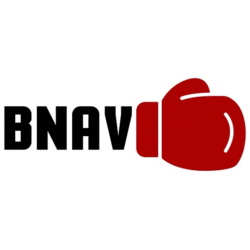There are fewer purer sights in boxing then witnessing a top level Cuban amateur in his prime.
With the recent domination in the AIBA World Series Of Boxing tournament culminating in a team championship win, amassing a near flawless 56-4 record, it appears Cuban amateur boxing is back to its best just in time for the 2016 Rio Olympics.
Many experts believe the Cuban athletes in this year’s Olympic tournament will continue this success with a total of 10 men travelling to Rio to compete in the revamped event.
There are a number of changes to the boxing format this year as the line between amateur and professional boxing becomes ever blurred, the most noticeable change this year is the removal of head guards.
The medical benefits and concussion reduction potential of the guard has been challenged resulting in it’s removal.
Another major change is to the scoring.
The previous method of amassing points per scoring punch has been changed to a system preferred by the professional game of ’10 points must’ – where the overall round winner is benefited.
Cuban boxers are drilled to perfection favouring the previous style of scoring.
Precise punching, long jabs and avoidance of body work has developed a style that doesn’t favour in the professional ranks, the new scoring system will go some way to reduce the competitive edge the Cuban team have developed over the last few decades.
Cuba take 10 of the most highly regarded boxers in amateur boxing to Rio with serious contenders, such as three time 60kg world champion Lazaro Alvarez and Light Heavyweight Julio Cesar La Cruz the cream of the crop.
Amateur boxing in Cuba has a proud heritage and although baseball is Cuba’s national game, boxing is seen as its profession.
Until recently boxers were forbidden from turning professional which put the focus very much on the amateur game.
In a country where resources are limited and the working classes are on the line of poverty, amateur boxing is seen as an opportunity to improve living conditions.
(An excellent documentary by the BBC on what Cuban boxers go through):
Cuban boxers are subject to military style training regimes by some of the toughest trainers in the world. These factors combined with the intense heat forges fighters known for their toughness and non stop energy.
Perhaps one of the country’s most famous sportsmen was boxer Teofilo Stevenson who won an incredible three Gold medals.
Stevenson won 302 fights, went 11 years without a loss and famously (allegedly) turned down a million dollars to turn professional and face the great Muhammed Ali.
Once when asked why he didn’t defect from Cuba and take the riches he commented:
“What is one million dollars compared to the love of eight million Cubans.”
This gives us an insight to the attitude of the nation’s fighters who still prefer the love of their nation to the professional rewards.
There have been notable exceptions recently with Guillermo Rigondeaux (17-0, 11 KO’s) widely regarded as one of the greatest amateurs of all times, defecting from the nation in 2009 to turn professional.
It will be interesting to see how the Cuban boxers fare in the 2016 Rio games and whether they can continue the domination of amateur boxing.
The pull of the professional game and the recent decision allowing Cuban boxers to turn professional with the nation’s blessing could see medallists buck the trend and feature in the paid ranks.
This could dilute the nation’s amateur talent and see the balance of power finally shift away from the Caribbean nation.
The post Why Cuban Boxers Might Be A Little Less Dominant in 2016 Olympics appeared first on %%Boxing News and Views/%%.





